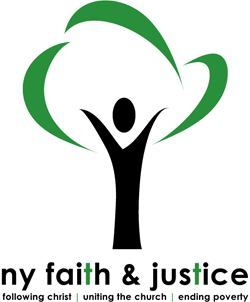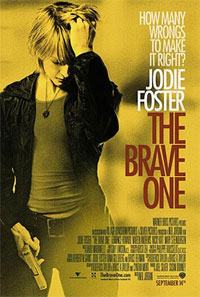 When I got an invitation to attend the launch of New York Faith & Justice (www.nyfaithjustice.org), their mission statement caught my eye. Simply stated, their goals are: Following Christ, uniting the church, and ending poverty in New York through spiritual formation, education, and direct advocacy. Grounded in the words of Isaiah 61, this movement envisions a city where New Yorkers are released from the oppression of poverty and the poverty of riches.
When I got an invitation to attend the launch of New York Faith & Justice (www.nyfaithjustice.org), their mission statement caught my eye. Simply stated, their goals are: Following Christ, uniting the church, and ending poverty in New York through spiritual formation, education, and direct advocacy. Grounded in the words of Isaiah 61, this movement envisions a city where New Yorkers are released from the oppression of poverty and the poverty of riches.
I can hear the naysayers now: “Here we go again. Another PC peace and justice group that’s all talk and no action. They might spout a bit of scripture but in the end, they’re really just a front for the Democratic Party. Been there. Done that. Next.”
I understand this kind of cynicism. I’ve covered too many “religious” justice-oriented gatherings that were full of sound and fury but in the end signified nothing. The power of prayer and preaching about the Risen Christ seemed to take a back seat because God forbid we talk about Jesus and offend our secular counterparts. Also, after satirizing the antics of the Religious Right for more than 12 years, the last thing I want to see is the creation of a Progressive Left counterpart.
So when I read that this group was “ecumenical,” I was skeptical at first. While religious leaders whose backgrounds ranged from PCA to ECUSA were invited to participate, would they actually show up? In a post-9/11 New York City, one seldom sees Orthodox, evangelicals, mainline Protestants, and Pentecostals willing to set aside their differences and come together in the name of Jesus.
However, this movement showed all the spiritual signs of being Bible-based and truly nonpartisan from the get-go. You know something is up when 15 students from Intervarsity Fellowship and Union Theological Seminary carry a wooden cross — literally — for 5.3 miles, trekking from Trinity Baptist Church, located on Manhattan’s Upper East Side, over to the Bronx.
This broad-based ecumenical spirit carried on throughout the evening with prayers offered by ministers representing a broad swath of the Christian faith. Liturgies, worship songs, spoken-word poetry, and visual art were intertwined with speeches by Lolita Jackson from Mayor Michael Bloomberg’s office; Rachel Anderson, director of Boston Faith and Justice Network; Dale Irvin, president of New York Theological Seminary; Lisa Sharon Harper, executive director of NY Faith & Justice; and Jim Wallis. If you read the backgrounds of these spiritual seekers, you’ll see that these are not cookie-cutter Christians all molded from the same batch of devotional dough.
Unlike some gatherings that talk around poverty issues without offering any concrete solutions, Harper noted how their programs are structured around the three mission points: Following Christ, Uniting the Church, and Ending Poverty. Right now, the program is far too early in its infancy to assess if these points can be sharpened into actual tools for social change. But based on what I saw this evening, I left the launch wondering if perhaps Shane Claiborne is indeed right — that “Another world is possible.” Will this ecumenical momentum continue? One can pray and hope.
Becky Garrison’s upcoming book Rising from the Ashes: Rethinking Church (Seabury Books, October 2007) explores what it means to be the church in the 21st century.

